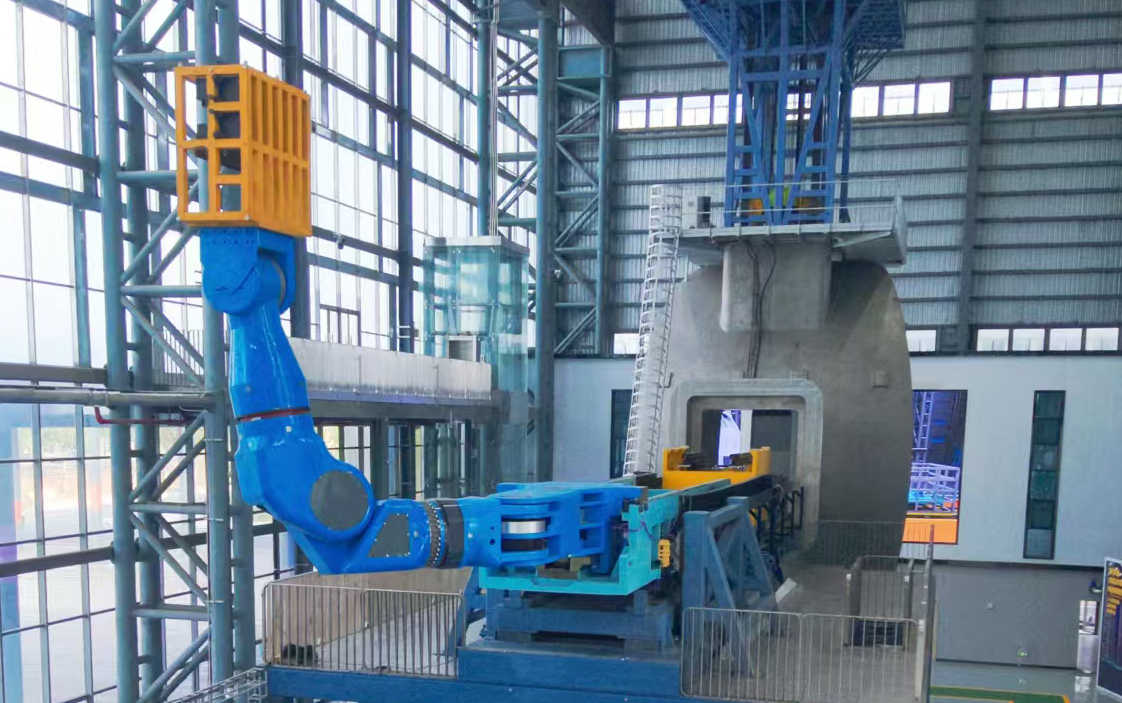
On September 15, the Institute of Plasma Physics, Hefei Institutes of Physical Science, Chinese Academy of Sciences, announced that the Remote Handling System Test Platform of the Comprehensive Research Facility for Fusion Technology (CRAFT) has successfully passed expert review and acceptance.
Field testing confirmed that the blanket maintenance robot can handle loads of up to 60 tons, with a toroidal transfer precision of ±3.1 mm and vertical lifting precision of ±3.8 mm. The heavy-duty robotic arm demonstrated a load capacity of 2.5 tons, while the dexterous dual-arm manipulator achieved a repeat positioning accuracy of ±0.01 mm. These results place the system among the most advanced in the global fusion field in terms of overall performance.
Fusion reactor in-vessel components, such as blankets and divertors, operate under extreme conditions—including high heat flux, strong magnetic fields, and neutron irradiation—that make them prone to damage and necessitate robotic remote maintenance. Conventional industrial robots, however, cannot simultaneously meet the demands of radiation resistance, ultra-heavy load capacity, high precision, and flexible operation required for such tasks. The establishment of this test platform addresses this technical bottleneck, providing a critical engineering validation tool for high-precision maintenance of massive components under high-radiation, confined environments, and supporting the stable operation and commercialization of future fusion reactors.
To tackle the challenge of rapid in-vessel component maintenance, the project team carried out key technological breakthroughs in materials, structure, sensing, control, and reliability. They resolved contradictions between large-scale robotic structural complexity, deformation under extreme environments, and the stringent reliability and precision requirements of fusion reactors. For the first time, the engineering feasibility of high-precision blanket module replacement and front-side divertor target plate maintenance was validated, shortening maintenance cycles and enhancing reactor operational efficiency.
The successful development of this remote handling test platform represents a major technological milestone, marking full indigenous innovation and control.
